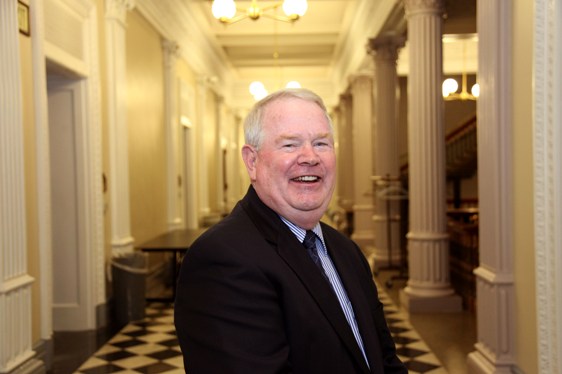
Ed. Note: Champions of Change is a weekly initiative to highlight Americans who are making an impact in their communities and helping our country rise to meet the many challenges of the 21st century.

It was a great honor and insightful experience to participate in the Champions of Change Roundtable with administration officials and community and technical college leaders from across our nation at a White House conference. We all agreed our nation faces an urgent challenge. Economic recovery efforts, global competitiveness, and our longer-term economic vitality, are compromised by a growing shortage of skilled workers in the United States. Moreover, social costs continue to rise as the number of unemployed, working poor, and incarcerated individuals continues to rise.
The challenge we face is daunting. It is projected that 60 percent of our working age population will be required to have a high quality degree or credential by 2018. Currently less than 40 percent attain these degrees and credentials. Compounding the challenge is shrinking federal and state budgets to support students and the colleges delivering essential programs and services.
Best practices shared by leaders instilled confidence that community and technical colleges throughout the United States can and will contribute to "winning the future" by stepping up to the challenge. Examples of innovative and entrepreneurial strategies to increase access and completion during these tough economic times were presented with the idea that other colleges will benefit from lessons learned. A common theme was the importance of partnerships with other educational institutions, workforce development agencies, and business and industry.
Walla Walla Community College (WWCC) continues to increase access to low-income, first generation, minority, and working adult students. Barriers are removed by providing financial aid, childcare, and funds to meet emergency needs. An opportunity grant program funded by the State and generous private donations from individuals, corporations, and philanthropic foundations make a difference. Establishment of expected learning outcomes, early academic warning system, mentoring, tutoring, and integration of basic skills instruction with workforce programs (I-BEST) contribute to significant increases in retention and completion.
WWCC, in partnership with the Washington State Department of Corrections, provides a comprehensive educational program at two large correctional facilities; developmental education, workforce programs, and an academic transfer program leading to an Associate Degree (funded by a private foundation). Studies indicate that recidivism rates decrease by 50 percent for inmates completing one or two years of postsecondary education.
WWCC is also recognized for innovative programs that align with the needs of the regional labor market. Ongoing economic analyses and impact studies provide information for continuous improvement. The College is known for leadership of a strategy that changed a declining rural region into a thriving ultra-premium wine, food, and art destination. WWCC's Enology and Viticulture Program received the Governor's Best Practice Award for economic and workforce development and is credited for contributing to the region's economic success. The program was also recognized by the U.S. Department of Commerce as one of two best practices in rural economic development throughout the U.S in 2007. This year our Water and Environmental Center received the Governor's Best Practice Award for economic and workforce development in the State for its significant contribution to economic, environmental, and cultural sustainability. A recently completed economic study shows significant increases in business creation and job growth attributed to this program.
WWCC will continue to enhance its productivity by creating faster, better, and more cost effective learning strategies. Examples are administrative and instructional efficiencies, expanded use of e-learning, and online student services, smarter and faster pathways for students to achieve degrees and credentials, move collaboration between campus-based and work-based learning, more collaboration among higher education institutions, and more partnerships with employers.
WWCC is honored to have been chosen as one of 10 finalists for the Aspen Prize and I am honored to be recognized as a Champion of Change by the White House. We are committed to sharing best practices with other colleges across the U.S. and with other nations.
As we look to the future, WWCC is reaffirming its commitment to increasing educational attainment of our students. Failure to do so will result in more job losses, lower wages, and a lower standard of living for more Americans. The United States risks turning the American Dream into a nightmare for at risk populations if we do not increase access to a high quality degree or credentials.
Dr. Steven VanAusdle, President of Walla Walla Community College since 1984, has established a culture that fosters innovation and entrepreneurialism on the campuses and in the communities served by the college.

